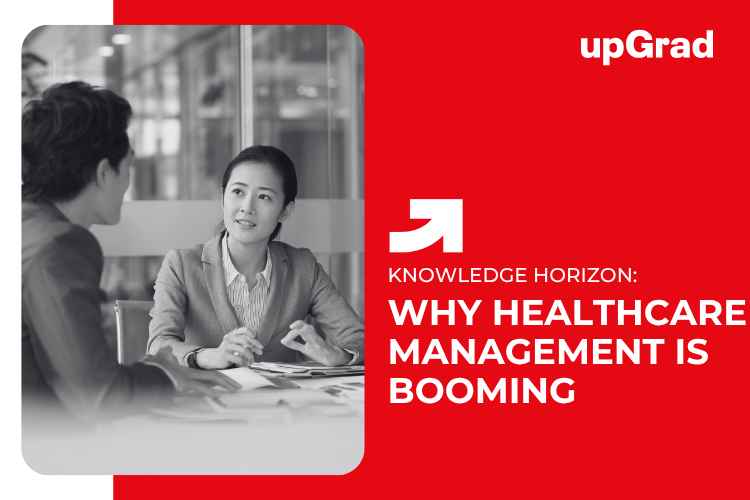Healthcare management is emerging as an attractive career path in Singapore. With a rapidly ageing population and increased focus on preventive care, there is a growing demand for capable healthcare administrators. This career allows you to make a meaningful impact while enjoying good prospects. Read on to learn the reasons for choosing healthcare management in Singapore.
The Evolving Healthcare Landscape in Singapore
Singapore’s healthcare landscape has been rapidly transforming over the past few decades. With an ageing population, rising chronic disease burden, and increasing health consciousness amongst Singaporeans, the demand for quality healthcare has been surging.
This has led to massive investment and expansion plans by both public and private healthcare institutions. The government has ramped up infrastructure and workforce capabilities with several new hospitals, polyclinics and nursing homes in the pipeline over the next decade. With increasing privatisation, private players are also capitalising on the opportunities, as seen by the opening of multi-speciality tertiary hospitals by groups like Parkway, Raffles and Thomson.
Furthermore, SG Enable and community care facilities are also being expanded to provide long-term care support for older people and those with disabilities. Telemedicine and home care services are also gaining significant interest and adoption. The COVID pandemic has further propelled digital health adoption, which is here to stay.
Most importantly, when you’re willing to pursue a healthcare course from Singapore, make sure to consider the best colleges for healthcare management to make the right choice.
Also Read: Highest Paying Non-IT Jobs in Singapore
Singapore has one of the most efficient healthcare systems in the world. Here are some key reasons this field presents an attractive career path in Singapore:
1. Exposure to advanced healthcare systems and technologies
Singapore’s healthcare system utilises state-of-the-art medical technologies and treatments. Professionals get hands-on experience with high-tech care delivery models, electronic medical records, telemedicine, and more. This equips them to operate, improve, and lead complex healthcare systems.
2. Access to a multicultural learning environment
Singapore has a highly diverse population leads to rich cross-cultural exchanges between patients, staff, and management. Healthcare leaders must navigate these dynamics skillfully. Multicultural exposure hones cultural competency and prepares leaders for globalised healthcare environments.
Also Read: Affordable Online MBA Programs for Singapore Students
3. High-quality education with internationally recognised accreditation
Singapore’s universities and institutes offer rigorous healthcare management programs accredited by industry bodies like the Commission on Accreditation of Healthcare Management Education. Students enjoy expert faculty and graduate ready for leadership roles.
4. Practical, hands-on learning through internships and projects
Healthcare management programs provide plentiful applied learning in Singapore’s world-class healthcare institutions. Through collaborations, internships, and projects, students gain first-hand exposure to solving real-world healthcare delivery challenges.
Also Read: MBA in Education Management and Leadership

5. Potential for high-paying job opportunities in healthcare management
With its developed economy and complex healthcare landscape, Singapore offers attractive career opportunities in hospital administration, health tech, and more. Salaries are lucrative and rising with high demand for skilled healthcare leaders and managers. You can also look at the list of healthcare management careers for a better in-depth understanding.
Also Read: What Are The Job Prospects After An MBA In Singapore?
6. Networking opportunities with professionals in the global healthcare industry
From conferences to internships, Singapore offers opportunities to connect with C-suite executives from cutting-edge healthcare institutions across Asia and beyond. Building these networks boosts career prospects and fosters global perspectives.
Also Read: Best MBA Programs in Singapore: Your Path to Success
7. Proximity to leading healthcare facilities and institutions in Asia
Singapore sits at the heart of Asia Pacific, surrounded by rapidly growing healthcare markets. This allows students to study best practices from neighbouring countries while positioning themselves in a hub for regional medical travel and trade.
Also Read: Top 10 Online MBA Programs for Singapore Students in 2026
Students can find degree programs centred specifically on healthcare disciplines like operations, quality improvement, health informatics, etc. These specialised tracks allow tailored preparation to match precise career goals.
Also Read: MBA for Entrepreneurs: Building and Scaling Startups
Singapore’s evolving healthcare landscape offers exciting career opportunities in healthcare management. With rising demand, infrastructure investments, rapid technology adoption, and a multicultural environment, professionals gain rich exposure. Healthcare management allows impactful work with attractive salaries and networking prospects in Singapore’s globally renowned healthcare system.
Some online MBA programs that you can explore are:
- MBA from O.P. Jindal Global University
- MBA from Paris School of Business
- Master of Business Administration (Edgewood University)
- Master of Business Administration from Liverpool Business School
- Master of Business Administration (Golden Gate University)
Have questions? Email us at query@upgrad.com or call +65 6232 6730.
🎓 Explore Our Top-Rated Courses in Singapore
Take the next step in your career with industry-relevant online courses designed for working professionals in Singapore.
FAQs On Healthcare Management Career
Singapore has an ageing population that needs more care. People also want better access these days. So, the government is spending more on new hospitals, clinics, and nursing homes and using technology to reach patients.
Patients get high-tech treatments and digital health services in Singapore. Doctors use electronic records and things like telemedicine. This allows them to manage and deliver top-notch care.
You could manage operations, quality improvement, health IT, or strategy for hospitals, insurance companies, and clinics. Salaries are attractive, and demand is high for those skills as healthcare expands.
Singapore’s diverse culture and leading medical institutions create a unique learning environment. Students also get practical experience through internships in world-class facilities.
You gain contacts with medical leaders across the Asia Pacific. And you understand efficient models to replicate globally, as Singapore is a case study for outcomes and innovation.












.png)







